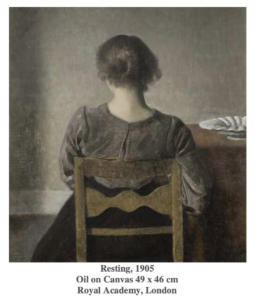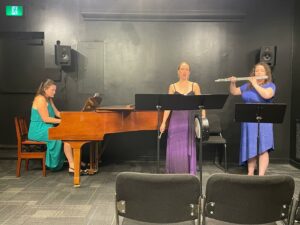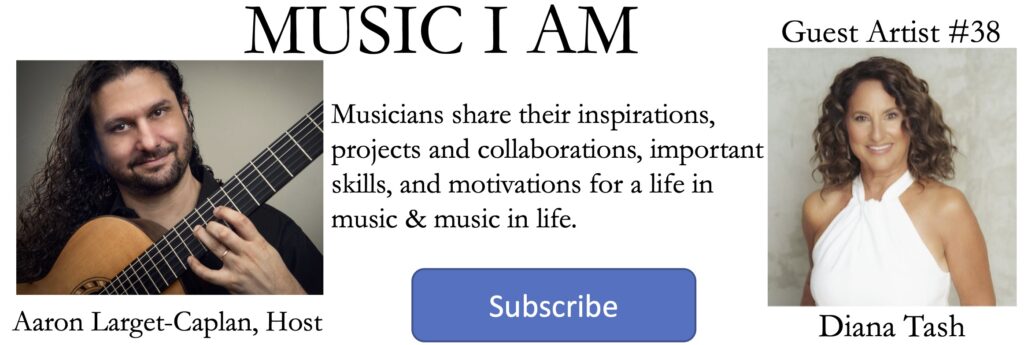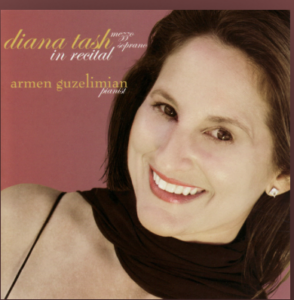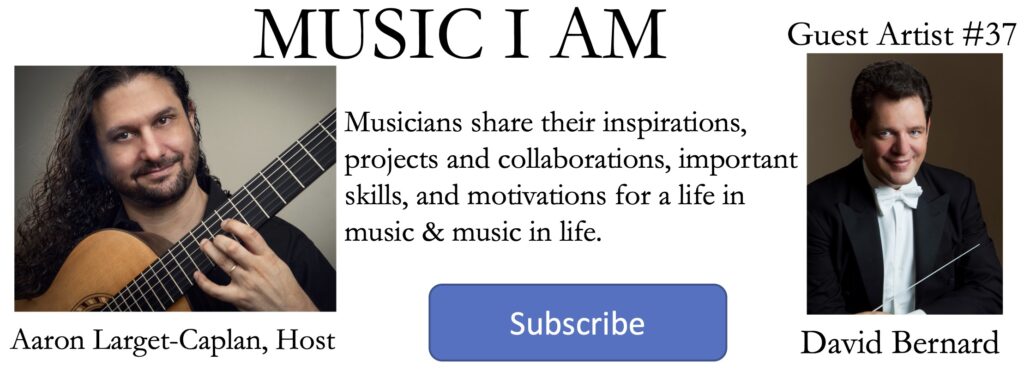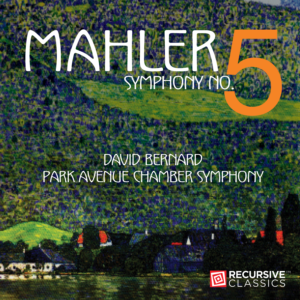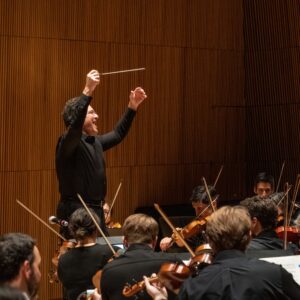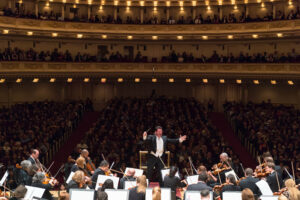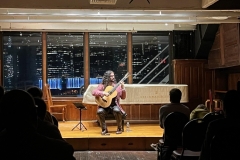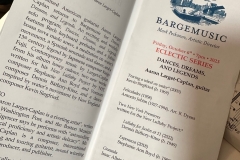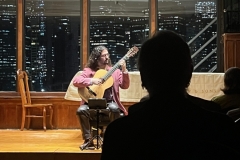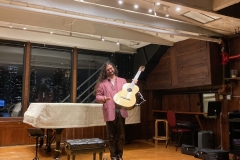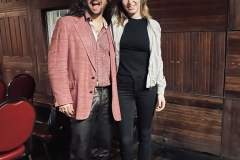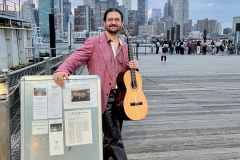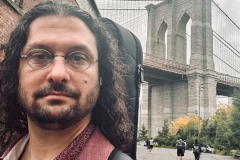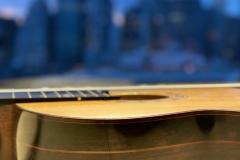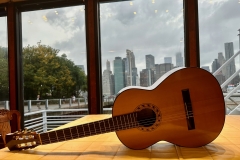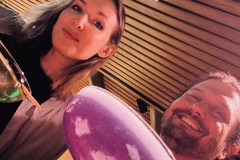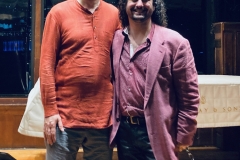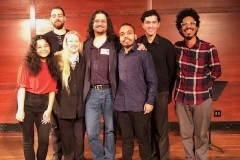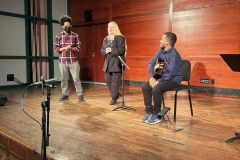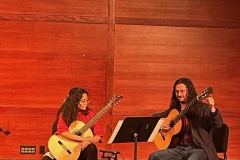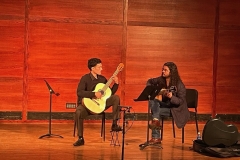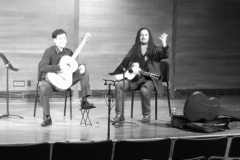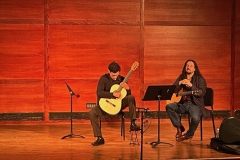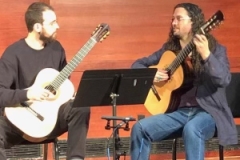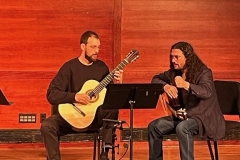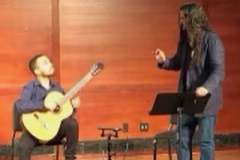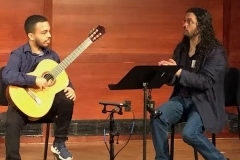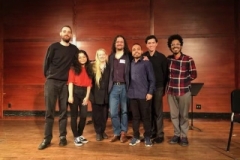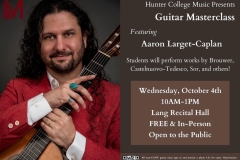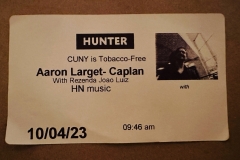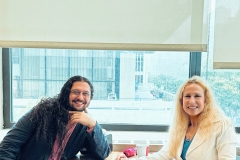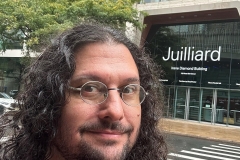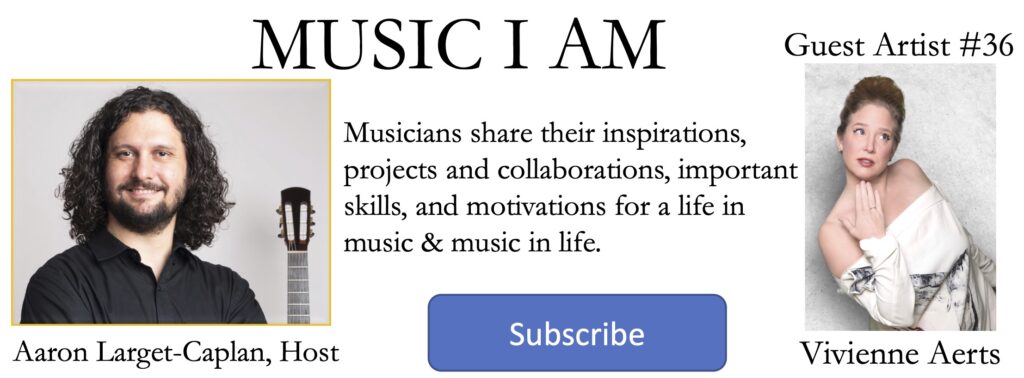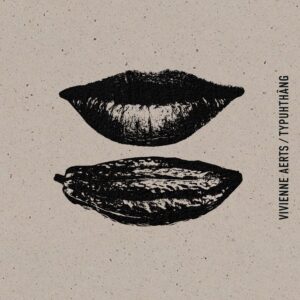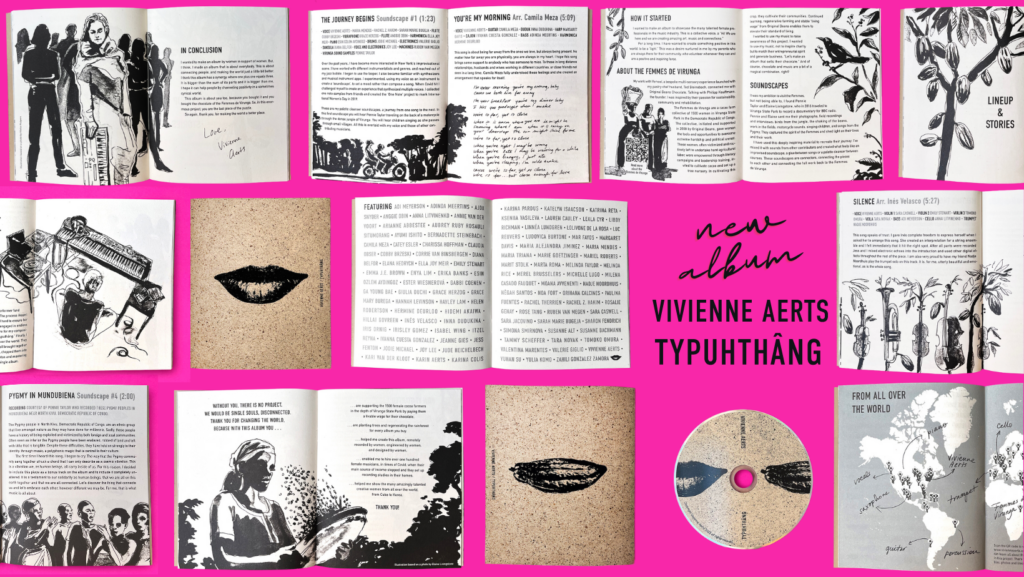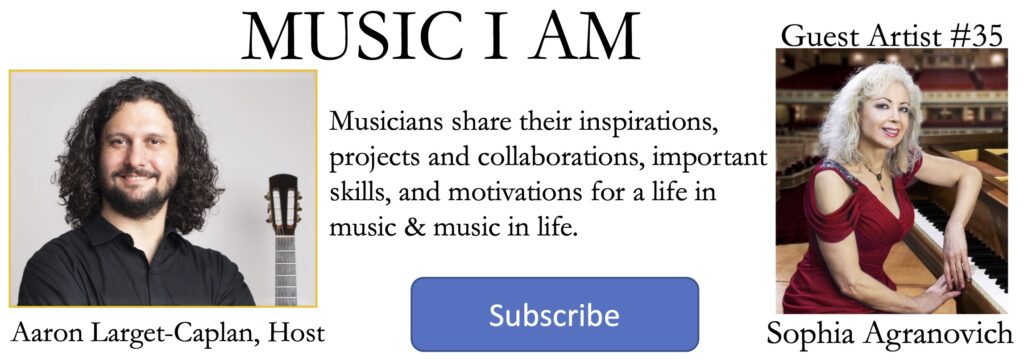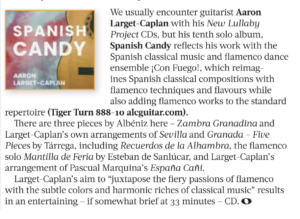Guitar + String Trio in Maine
- Chamber Music, Concerts, Touring
- 1 Comment
I’m very excited to be performing three concerts of music featuring guitar with string trio (violin, viola, cello) with the exemplary musicians Robert Lehmann, Kimberly Lehmann, and Rebecca Hartka.
- MANUEL M. PONCE Quartet, for guitar, violin, viola, cello (1946)
- NICOLÁS LELL BENAVIDES Rinconcito (2018) – Maine premiere
- ASTOR PIAZZOLLA from Histoire du Tango (1985)
- Bordello 1900 (guitar/violin)
- Café 1930 (guitar/viola)
- Revirado (guitar/cello)
- ROLAND DYENS Tango En Skai (1985), arranged for quartet
- ANTONIO CARLOS JOBIM Felicidades, Arr. Dyens*
- ANTONIO CELSO RIBEIRO Vain Lullaby (2021) – Maine premiere*
- AGUSTIN BARRIOS Una Limosna por El Amor de Dios (1944)*
- * USM Concert only
CONCERTS:
-
Friday November 3 • 1pm • Ellsworth
-
Monday November 6 • 7:30pm • University of Southern Maine, Gorham
-
Wednesday November 8 • 1pm • Bay Chamber Concerts, Rockport
**Music I Am Interview with Nicolás Lell Benavides: HERE
NOTES (selected):
Vain Lullaby by Antonio Celso Ribeiro
The piece is inspired by the painting “Resting” done in 1905 by Danish painter Feliz Krämer Vilhelm Hammershøi (1864-1916) depicting a woman seated in a chair, gazing at the wall. Her hair is gathered up in a bun and she is wearing a modest black skirt and a dark grey blouse with puffed sleeves and a scooped neck. Her apparel is conservative and humble. In my mind she sings a vain lullaby. She sings a vain lullaby in vain.
Rinconcito by Nicolás Lell Benavides
Rinconcito gets its name from one of my mother’s favorite songs: Rinconcito en el Cielo by Ramón Ayala. As a kid I always loved the idea of there being a little corner of heaven that one could visit with a friend or lover. Of course, as I grew older it dawned on me that the lyrics had a much more adult meaning! However, the image of a secret corner in the sky for friends has never left me. Though I don’t use any of the music from Ayala’s beautiful song, this piece is about ancestors in the way I imagined it as a child.
Rinconcito is about a meeting place for the dead and the living. My Grandpa Garcia, an accordionist who taught me to play rancheras and corridos as a kid, used to tell me that music is the only thing that people in heaven and people on earth share. When I was young, I imagined one could make music with the ancestors in heaven. This work takes elements of traditional New Mexican music but reconfigures them and distills them to the point of sometimes being unrecognizable.
In this piece, you will hear thirds and fourths that alternate both high and low. In my mind, the pure intervals of fourths and fifths are the intervals of the ancestors. Thirds and sixths are the intervals of the living. The piece opens up atmospherically, like an unsteady first contact, before a level of rapport is established and the thirds and fourths intermingle effortlessly. The primary guitar motive is constructed of a third and a fourth together, symbolizing the tangible shared music of heaven and earth. Before long the piece leaps into a fast dance, using common features of Southwestern music, and then the slower, atmospheric music returns, with the ancestors saying goodbye for now.
The work is inspired by my upbringing in New Mexico and my two grandfathers, one of whom passed away recently: Gilbert Benavides (1929-2018) and Eddie Garcia (1933-). They were and are as New Mexican as New Mexican can be and served as a strong cultural connection to the old way of life in the Land of Enchantment. As I have one grandparent left, I’ve become painfully aware of the fragility of our connection to the past and the need to actively maintain it. Each new generation inherits this link, and I hope through music like this to play my part in preserving it. Though I have until now infrequently looked inward toward my own culture for inspiration, I’ve very much enjoyed the process and hope that this is the beginning of a new series of pieces where I explore the theme of what it means to be New Mexican.
A big thank you to Left Coast and Will and Linda Schieber for making this commission possible.
– Nicolas Lell Benavides

